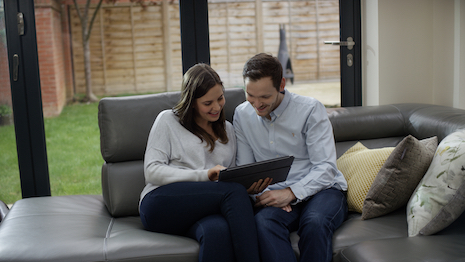- About
- Subscribe Now
- New York,
August 24, 2020

 Workers are commuting less, but opting for cars instead of public transit. Image credit: Lexus
Workers are commuting less, but opting for cars instead of public transit. Image credit: Lexus
With the coronavirus pandemic continuing to impact the American economy and workforce, it has also changed commuting patterns — presenting possible challenges to automakers.
Two-thirds of workers are saving time on their commutes, according to a new survey from cars.com. While the pandemic has increased people’s reliance on their personal vehicles, a significant number of respondents believe they will commute less even when returning to their offices.
“As much of the American office workforce continues to work remotely, there is a major shift in commuting behavior, which is likely to have a lasting impact long after we return to the office,” said Matt Schmitz, assistant managing editor for Cars.com. “And when they do finally return to the office, it won't be via mass transit. Personal vehicles will dominate the work commute as distrust in public transport and ride-sharing continues.”
The findings are based on a survey of more than 3,000 U.S. commuters.
Cars and COVID
Two in 10 respondents have bought a car in the last six months, with 57 percent of recent vehicle owners saying it was a result of coronavirus.
Thirty-five percent of future commuters also plan to commute less once they return to the office, possibly due to the growing acceptance of hybrid workplaces (see story).
 Affluent consumers are becoming more receptive to purchasing cars online. Image credit: Volvo
Affluent consumers are becoming more receptive to purchasing cars online. Image credit: Volvo
By driving their personal vehicles less frequently, drivers may be able to extend the lifetimes of their cars and purchase new vehicles even less frequently.
However, the majority of workers, 62 percent, have turned to driving cars instead of using public transportation for their commutes.
In addition to cutting back on public transit to avoid exposure to COVID, commuters are also avoiding ride-sharing services. Fifty-nine percent of respondents are using ride-sharing less often than pre-COVID.
Research shows that there is in a higher likelihood of the coronavirus being transmitted in an enclosed space, which includes subways, trains, buses and cars. The risk is more present in ride-sharing or taxi services compared to personal vehicle use.
Prior to the pandemic, younger affluents had not prioritized car ownership, partly due to the popularity of ride sharing applications (see story). Many luxury automakers have experimented with ride-sharing and car-sharing partnerships, to mixed results.
Share your thoughts. Click here